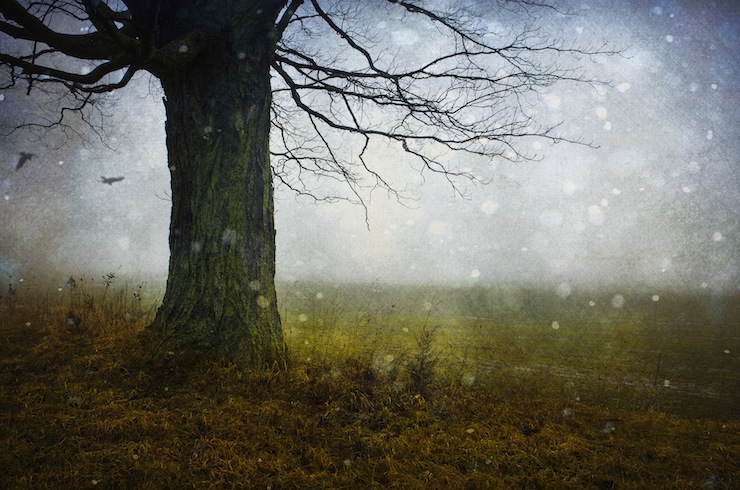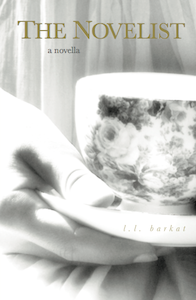We recently talked about the Read for Fun movement on Twitter, considering the ways a love for reading (for its own sake) can be overtaken by the need (read: requirement) to read for work or study. Part of that conversation was about where we read for fun, and how we read for fun. Here’s one book-lover’s take on reading for fun.
_________________
The act of reading is at once reflective, imaginative, communal, solitary, quiet—an altogether powerful undertaking. Picking up a book is like shaking the hand of a stranger, inviting her into your living room, and, through a series of gestures and preparations, coming to an arrangement of how you both will occupy the next few hours of the day. The author has set out a story, and the reader willingly undergoes the adventure, not knowing if it will cause heartbreak, laughter, anger, or even all three.
The mystery is what makes books so enticing to me. There are, of course, little peeks and cracks in the tale that I can leaf through and catch onto. The back cover or book jacket will sometimes reveal; turning to the middle of a page can provide an unscripted glance into the kinds of characters I’m going to become friends with. Recommendations from friends, book clubs, or the Staff Picks shelf at my local bookshop can also provide interesting clues. There is the world the author creates on purpose, but upon being given to a reader, that world can expand into twelve more.
Reading, then, is a kind of magic. Professor Dumbledore understood the transformative power of words, as does Doctor Who. Though not flesh and blood, these characters are real to me in the sense that they understand something about reading, writing, and the community forged between them that some days I struggle to remember:
Reading is fun.
Yes, there are textbooks and graded papers and breakup letters and past-due bill notices. But there are also hobbit songs, unicorn adventures, children living in a smuggler’s hotel, and redemption by way of identity. The process of selecting a story is choosing to put yourself into a world that is unfamiliar, in order to find the familiar in our own lives. Stories help us remember things we have forgotten that were at one point second nature. These are always personal. Some of us may have forgotten how to laugh. Others may have lost the ability to be soft towards life. Maybe others need a motivational push, encouragement, or a new dream.
Books have it, whatever it may be. This is why I choose to read. The things I have forgotten and remembered in my journeys through Middle Earth, graveyards, and the sea are too many to count. I can always trust a book to be the north star. The ways I choose to read reflect the comfort and clarity I’m seeking in these stories. Normally, this means I am nestled on the couch in my living room, so aptly named. Here I can survey my children in their play but retain my own atmosphere. They hardly notice me until I intervene in their squabbles. Sometimes I’ll pop out for a green tea latte at a local tea house, or take a blanket to a clearing in the woods behind our apartment complex. Decadent treats.
There are also moments I get so lost in the stories, I very nearly fall into them. Somehow or another, my hair ends up tied back or braided. I think I do this most when I’m anxious or anticipating something profound, and I need to be free from any stray strands. Maybe my subconscious thinks I’ll absorb the story better that way. It’s also a nervous tick: my hands need to be doing something when my adrenaline is high. Braiding is a nonintrusive occupation, so long as I can hold the book open with the tips of my feet.
Above all, being a reader means I become an inventor, a magician, an observer, and a participator. I can combine the paradoxical parts of myself into one whole person, thread together the different acts I play in a day—through a strange, intimate story. In reading, my heart finds healing—and knowing—so I keep pulling titles from their delicious wooden shelves.
Photo by Jimmy Brown, Creative Commons license via Flickr. Post by Lakin Easterling.
________________________
Follow copywriter and poet, Laura, as she tries to figure out how to write a novel to meet Megan Willow’s challenge: a book by September.
Find yourself in this story of The Novelist. A novella by L.L. Barkat.
- Read for Fun—Reading Yourself into the Story - April 3, 2015
- Journey into Poetry: Lakin Easterling - November 20, 2013


Maureen Doallas says
Beautifully written, Lakin.
I can’t imagine a life without books (or art). Reading creates a kind of intimacy with author and characters, opening up all possibilities.
Lakin Easterling says
Maureen, I love that you notice the intimacy in art. Reading is definitely an art to me, enhanced by sharing experiences. A reason why a enjoy book clubs. (:
Bethany R. says
Lakin,
What a treat to read this gorgeous piece this morning! You have such a delicious way of describing and expressing yourself. Thank you for sharing this with us.
Lakin Easterling says
Thank you, Bethany. (: Do you have a “reading routine” upon waking? There doesn’t seem to be many newspaper subscribers any more. I wonder if we are all finding things to replace the morning paper? Poetry seems to be a good option. (:
Charity Singleton Craig says
Lakin – I was reading myself into your own story here, and remembering with delight the reading adventures I have gone on in the past. I have been to so many places – some real, some imagined – that I would never have traveled to without riding on the pages of a book.
Sometimes as a writer, I get weary about the publishing world, wondering if it’s worth trying to get books published. There are plenty of ways to write and publish without the glossy cover and smooth pages and the cracking of the spine in my hands. But I love books. I can’t help it. I love reading them, and I want to write them. And what you’ve written here is why.
Lakin Easterling says
I’m with you, Charity. I’ll read anything, but nothing can replace the sensory experience of a book. I’ve not written anything for publication (yet), but when I do I want to hold it in my hands and have the spine-cracking paper smell greet me. Happy to renew that same memory for you. (:
Donna Z Falcone says
What a great piece… makes me pretty sure I would enjoy getting back to reading for fun and whimsy. I’ve been suspecting this for quite some time, but now I’m sure of it. And the braiding? That is fascinating. Thank you for your post. 🙂
Lakin Easterling says
Donna, whatever book you choose to read for fun will be special to you. There was a period of time where I was so swamped in texts and papers I had zero books on my shelf for fun. When I broke that streak, I picked The Night Circus by Erin Morgenstern. It remains one of my favorites. I hope you find a surprise waiting for you in whatever book you choose. And, let us know what it is! (:
Richard Maxson says
Very well written, Lakin. You’ve captured the reasons books are “it” for sure. I loved the idea of reader as inventor. No two people envision the Shire the same way, nor Smaug sleeping in his lair of treasure.
Books have always held great significance in my life. I can’t read a book from a screen and get the same enjoyment I do from a book. I find it nearly impossible to get lost in a story or poems without the “living” feel of a book. I have always loved their touch, their smell and the sound of pages turning. I’ve had some of the same books for decades and go back to them, always with a feeling of renewal.
Lakin Easterling says
Rick, the “living” feeling you describe is most definitely rejuvenating. I get the same feeling holding a book as I do when walking, digging in the garden, or sitting on the beach. There’s some magic in paper and ink for sure. I’ve kept some of my favorite books for that reason, as you have. Some of them are very well-loved, making them all the more important to me. What’s the oldest book you have?
Richard Maxson says
The books I’ve had in my life the longest are a in a 10 volume set of Collier’s Junior Classics. My parents bought them when I was five years old and I have kept them with me since I left home at eighteen. So I guess I’ve had them sixty-four years. Each volume is a different color and the subjects cover fairy tales, myths and legends, adventure, animal stories, history and of course poetry. The two oldest books (by publishing dates) are an 1897 volume of poems by Tennyson and a 1934 volume of Leaves of Grass. I’ve owned both for over forty years. I now live in the Ozarks in Eureka Springs, Arkansas about an hour from Branson, Missouri. The Tennyson book was purchased in at a used book store in Texas in 1972 when I was in college at University of St. Thomas and has a sticker from The Old Shepherd’s Book Shop in Branson, MO.
Richard Maxson says
Your essay is very important. Of course it is about reading for fun, but even more so it is about the physical importance of books with print on paper, books that have a physical presence in the world. I am not a Luddite about electronic media; I think it is very important as well in its ability to disseminate information. Both are essential to the world and its societies as the world as an entity becomes a mature adult (we are certainly not there yet).
Two of the books I consider “living” by virtue of their travels are both books I consider essential to my life, as it has materialized before me or around me, are “Zen and the Art of Motorcycle Maintenance: An Inquiry Into Values” by Robert Pirsig and “The Bridge Between Matter and Spirit Is Matter Becoming Spirit” by the visionary architect Paolo Soleri. Both these books have been loaned to and returned by friends many many times all over the country since the 70s. Zen is on loan now to one of my daughters. Both books are paperback with creased covers and broken bindings and some loose pages (that have never been lost). They are “living” because of the lives they have affected and the discussions of which they have been the subject entirely or in part.